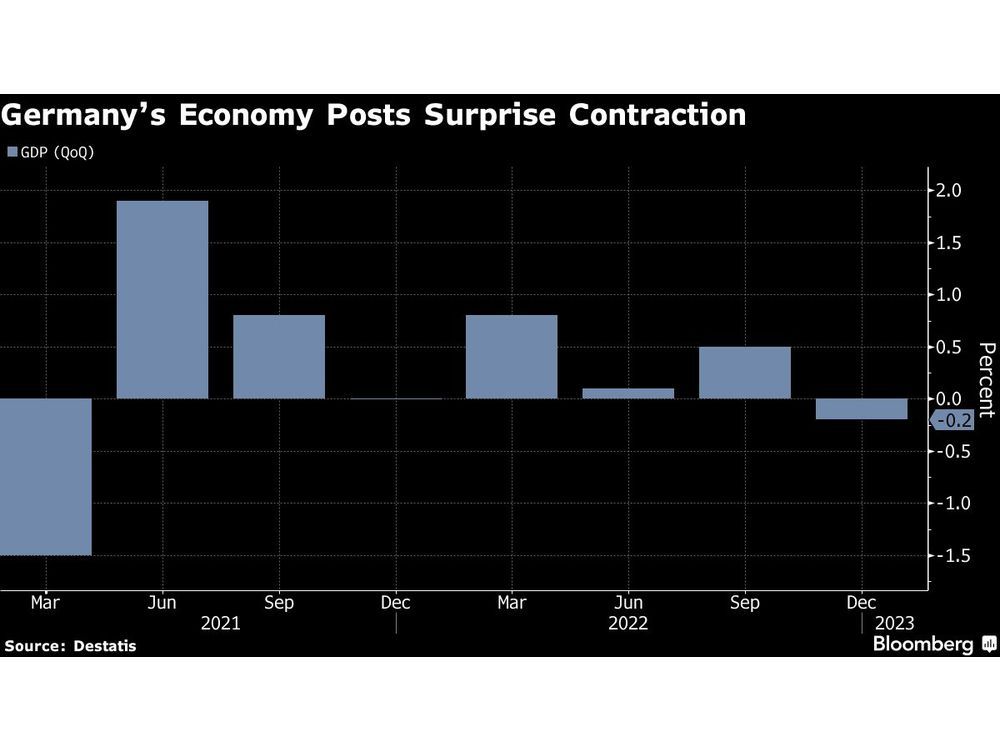
Article content
(Bloomberg) — Germany’s economy shrank 0.2% at the end of last year — a worse outcome than previously flagged and one that makes a recession on the back of rising energy bills more likely after all.
Article content
The figures Monday from the statistics office contrast with an estimate this month for output to have stagnated in the fourth quarter. They also mean a contraction in the period through March would still produce a recession in the euro area’s largest economy.
Article content
Several indicators in recent weeks have pointed to growing confidence in Germany after a mild winter and well-filled natural gas storages all but eliminated the risk of shortages during the heating period. Wholesale prices for the commodity have fallen from record highs, nurturing hopes that inflation will cool sooner than previously thought.
Demand is weighed down as surging prices continue to filter through to consumers. That trend was also visible in Sweden, whose economy unexpectedly contracted in the fourth quarter, separate data earlier Monday showed.
Article content
“We expect more of the same for early 2023, namely a modest decline in real GDP reflecting mostly lower consumption,” said Salomon Fiedler, an economist at Berenberg. “Following the mild winter recession, the economy is likely to stabilize in spring and start to expand significantly again in mid-2023.”
There was some good news elsewhere. Belgium managed to eke out growth of 0.1% and Latvia grew 0.3%, while euro-area economic confidence rose for a third month in January, climbing to the highest level since June.
But Germany’s outsized manufacturing sector, while underpinned by a large backlog and an easing of supply bottlenecks, is seeing orders fall.
The government in Berlin last week forecast growth of 0.2% for 2023, compared with an earlier prediction for a 0.4% contraction. Economy minister Robert Habeck still warned of a possible recession, and that the crisis Russia sparked with its invasion of Ukraine isn’t over.
Article content
The outlook remains uncertain. Inflation could prove stubborn amid growing demands for higher wages. Postal workers have gone on strike to push for a 15% pay hike, and public-sector employees are also seeking a double-digit raise.
The European Central Bank is determined to tackle surging prices with restrictive monetary policy. It’s set to lift interest rates by another 50 basis points this week, adding to what’s already the most aggressive tightening campaign in its history. The full impact of those measures has yet to be felt.
—With assistance from Joel Rinneby, Kristian Siedenburg, Barbara Sladkowska and Zoe Schneeweiss.
(Updates with economist in fifth paragraph, Latvia in sixth.)
German Recession Risk Increases After Surprise Contraction - Financial Post
Read More
No comments:
Post a Comment